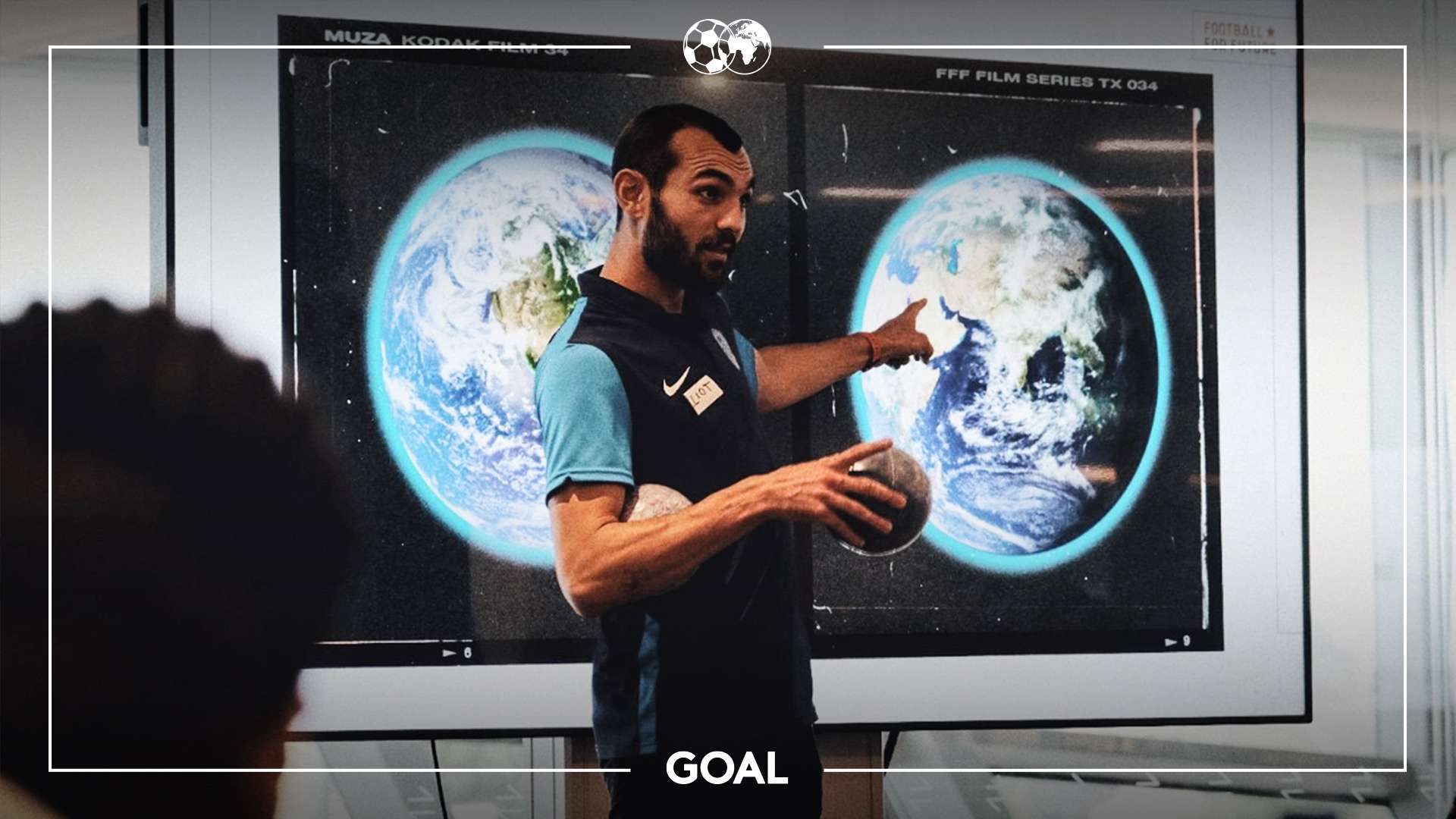"Sustainability is really important for us all to learn about,” Chelsea star Mason Mount says. “And if we all do our bit, we can help to make a change.”
It is a message growing louder and louder as the planet faces an incredible situation in potentially irreversible climate change – and when there is a well-recognised England international telling you that, the reach the message is given is only amplified.
“Maybe there's a 13-year-old Chelsea fan who thinks that to be sustainable is just really uncool. Maybe he hates his geography class. But then he sees Mason Mount talking about it and, wow, his whole world changes,” Elliot Arthur-Worsop, founding director of Football for Future (FFF), the home of sustainability in English football, tells GOAL.
Late last year, it was he and his team that helped facilitate this project that saw Mount talk about a global ongoing issue.
It was a collaboration not only with one of the stars of the Premier League, but with Chelsea, Tottenham, Nike and two more non-profit organisations - Bloomsburg Football and Football Beyond borders - to deliver the message to as many fans as possible
“Mason Mount is now the highest profile English player ever to speak out about sustainability and we facilitated him doing that,” Arthur-Worsop says, repeating it almost to confirm to himself that this really happened. “I think that's incredibly cool in itself.
“Last year, we supported two other professional football players speaking about climate and maybe about a fifth of all professional players who've spoken publicly about climate change have been supported in doing so by Football for Future, which I think is also an amazing thing.”
A couple of years ago, FFF was “basically a university project”. Since, it has “snowballed” into an organisation working with professional footballers, advising Premier League clubs and even becoming Nike’s sustainability community partner.
“You pitch the idea with this grandiose vision of, 'We're going to save the world through football' - and everyone is like, 'Hell yes, let's do it! Where do I sign?'” Arthur-Worsop explains.
“Obviously, [it’s] not quite like that, but I think the principle of it [is] empowering for people, because a lot of the time people don't really understand what to do. 'Do I become vegetarian and drive an electric car?' But this was something else that allowed people to bring together a couple of their passions in a creative way and build a lovely little community at the same time.”
As human activity causes temperatures to rise higher and faster than ever across the globe, it has never been more important for action to be taken.
While activists like Greta Thunberg are doing incredible work in that sphere, the awareness shown by footballers like Mount, Hector Bellerin or Patrick Bamford can only help spread the message to a new audience that might not otherwise hear these cries for help.
“It gives us reach,” Arthur-Worsop says, quite simply. But it is not just about working with those at the highest level.
The work with Chelsea and Tottenham was not just about people seeing Mount talk about climate change – it was about everyone involved in the collaboration helping to deliver workshops on the relationship between the climate and football, something no one has done before.
The idea started out as a document Arthur-Worsop put together with a friend, one he describes as: “If Carlsberg did climate overviews”. It had not been published until Nike reached out to FFF and it transformed into this series of “crash courses on climate”. Football is at the centre of them.
“We talk about the climate's impact on football, whether this is the World Cup moving or: Can you play when it's really hot?” he explains. “Or, can you play when it's really polluted?
“Talking to the kids about: Do you play football? Do you ever have your games called off because it's raining too much because of a waterlogged pitch? We just try to make it as relatable to their experience with football as possible.
“[We] conclude the lesson with all these big names talking about sustainability, whether it's Gary Lineker, who they watch on Match of the Day, or Hector Bellerin, or Patrick Bamford doing his celebration, and then we will get the kids to make up their own celebrations.
 Getty
Getty“I think that's probably the most powerful part of it, when they can see all of these famous footballers talking about climate as well.”
“Using the language of football is a great way to communicate anything,” Charlie Hyman, CEO of Bloomsburg Football, with whom some of these workshops were delivered, adds.
“FFF gave the participants a unique opportunity to engage with and relate to climate in a way that they’ve never done before.”
That sums up what FFF is about – engaging people in a new, unique way. When GOAL asks what else is in the pipeline, the list is long: Collaborations with two Premier League clubs are mentioned, as well as a project with a big apparel brand and a documentary that premieres this July.
That is as well as educational summer camps and the conclusion of more courses on climate change.
There is a lot to be done outside of FFF and football in general to tackle what is a hugely significant situation for the entirety of the human race and the world. The onus is on everyone to do their bit.
Arthur-Worsop may have laughed off the idea of saving the world, but doing so is the aim of the messaging, and he and his team are certainly playing their part.
